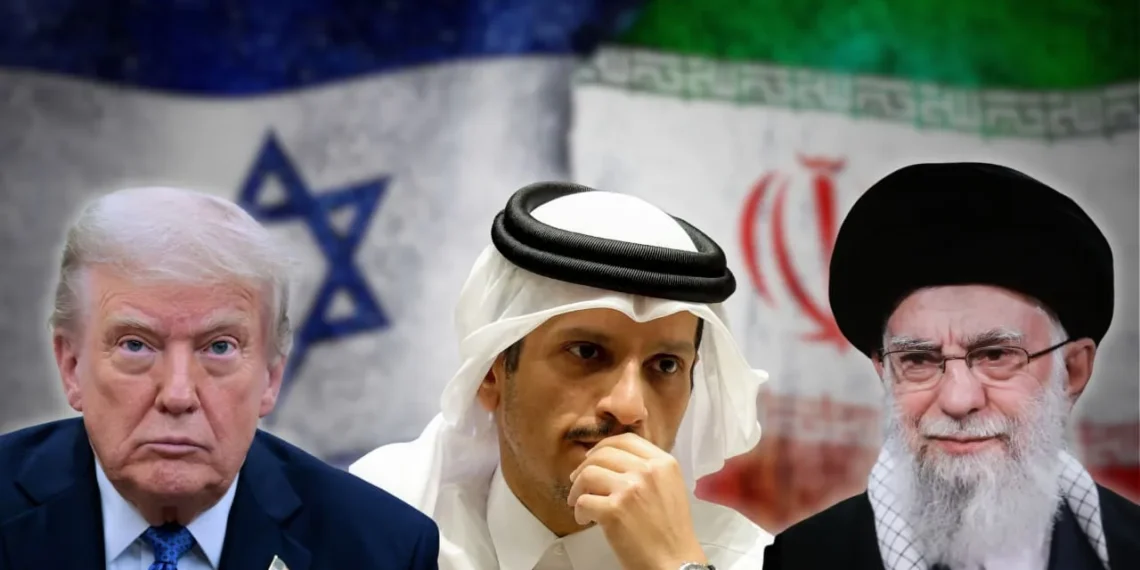On June 23, 2025, Iran launched a missile strike targeting the Al Udeid Air Base in Qatar, marking an unprecedented escalation in the already volatile Middle East. This strike, reportedly in retaliation for U.S. air attacks on Iranian nuclear facilities, not only escalates Iran-U.S. tensions but also threatens to disrupt the historically pragmatic relations between Iran and Qatar. Although the US President Donald Trump has called for ceasefire in the ongoing clash, the attack has sent shockwaves through the Gulf region, prompting condemnation from Saudi Arabia and other Gulf Cooperation Council (GCC) members.
Why Did Iran Target Qatar?
The Al Udeid Air Base serves as a crucial hub for U.S. military operations in the Middle East. By attacking this base, Iran sent a clear signal of defiance toward the U.S. and its allies in the Gulf. This strike served multiple strategic purposes:
Retaliation against the U.S.: Iran’s missile attack was a direct response to recent U.S. airstrikes on its nuclear and military infrastructure.
Warning to Gulf Allies: By hitting a base on Qatari soil, Iran aimed to warn other Gulf states hosting U.S. forces that continued involvement in the conflict could bring consequences.
Expansion of the Conflict Zone: Iran appears willing to escalate the conflict beyond its borders, targeting U.S. assets in allied countries to increase pressure.
Historically, Qatar and Iran have maintained a relatively pragmatic and cooperative relationship, despite their differing alliances. The two countries share ownership of one of the world’s largest natural gas fields and have avoided direct confrontation amid broader regional rivalries.
However, the missile attack marks a stark breach of Qatar’s sovereignty and challenges this delicate balance. Saudi Arabia has condemned the Iranian attack on Qatar, labeling it “unjustifiable and unacceptable,” and has pledged support for Qatar’s security.
Qatar now finds itself in a difficult position, balancing its economic ties with Iran against its close military and diplomatic relationship with the U.S. and other GCC nations. Now Qatar will have to manage the complicating regional geopolitics.
The Risk of Escalation
The possibility of a broader clash between Iran and Qatar is now a real concern. While Qatar has so far responded cautiously, any aggressive retaliation or increased military cooperation with GCC allies could escalate the situation further.
Moreover, as a key host of U.S. forces, Qatar’s involvement could draw the U.S. and other Gulf countries deeper into the conflict. Iran’s willingness to strike beyond its borders signals a dangerous expansion of the conflict, raising the stakes for all involved.
The missile attack threatens to destabilize the Gulf region at a critical time. The potential impacts include:
Regional Stability: Increased tensions among GCC members and the risk of proxy conflicts.
Energy Markets: Disruptions to the shared gas fields between Iran and Qatar could impact global energy supplies and prices.
Diplomatic Alliances: Strengthening of GCC unity against Iran and pressure on Qatar to align more firmly with either side.
Global Security: Risk of wider conflict involving major powers, including the U.S. and potentially Russia or China.
Economic Consequences: Sanctions reduced foreign investment, and economic instability in the Gulf.
Iran’s missile strike on Qatar’s Al Udeid Air Base represents a watershed moment in Gulf geopolitics. It signals a new phase in the Iran-U.S. confrontation and threatens to unravel the delicate balance in the Gulf region. And although US President Donald Trump seems to have called for a ceasefire in the ongoing clash, the coming weeks will be critical in determining whether diplomacy can prevent a wider conflict or if the region plunges deeper into instability.







